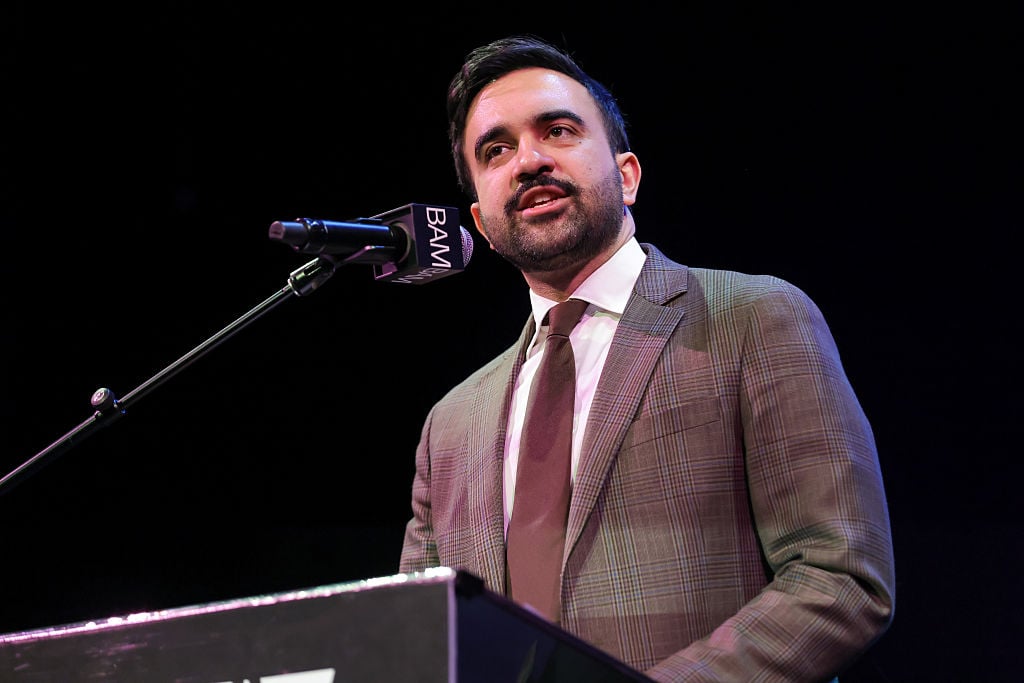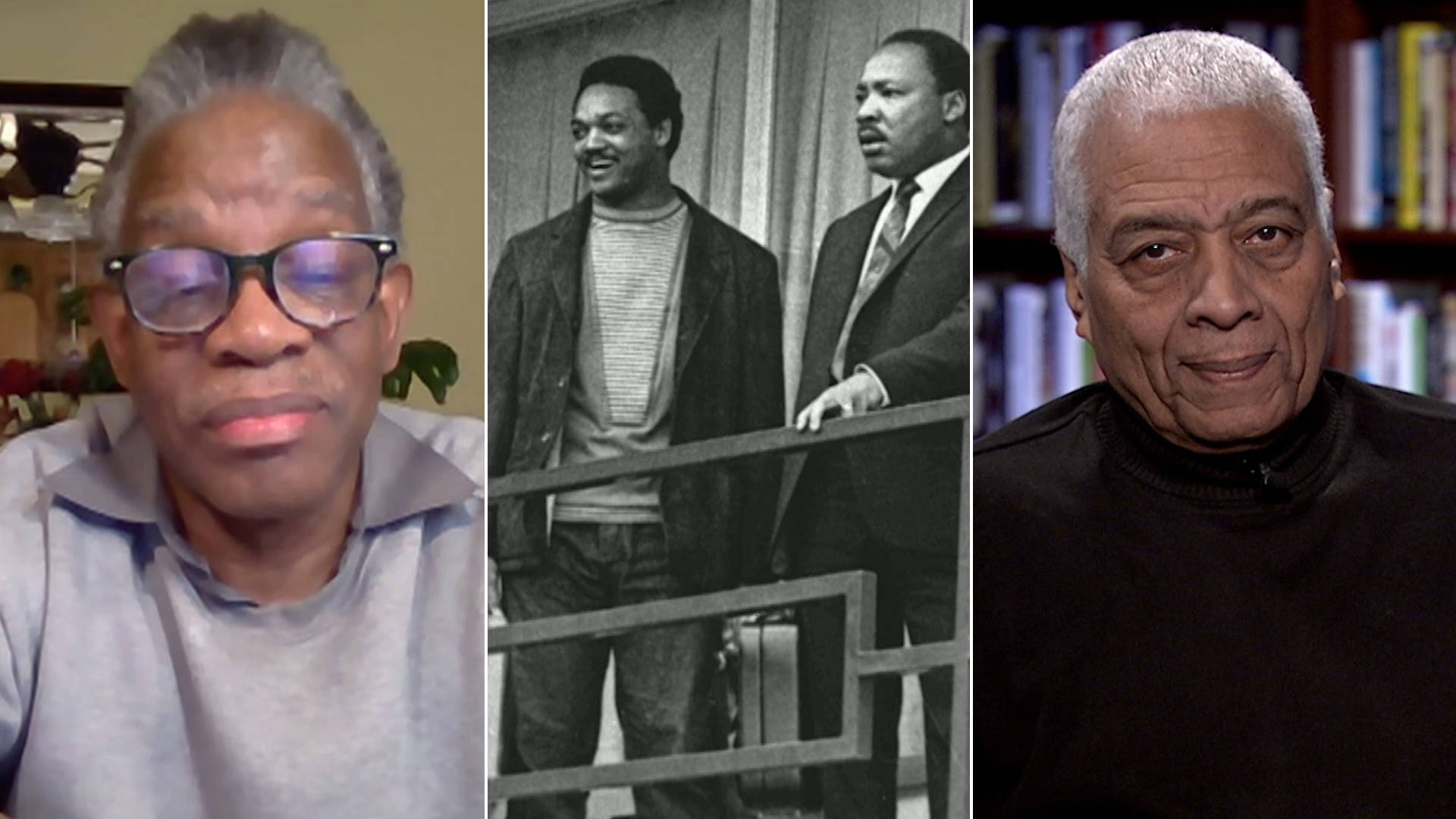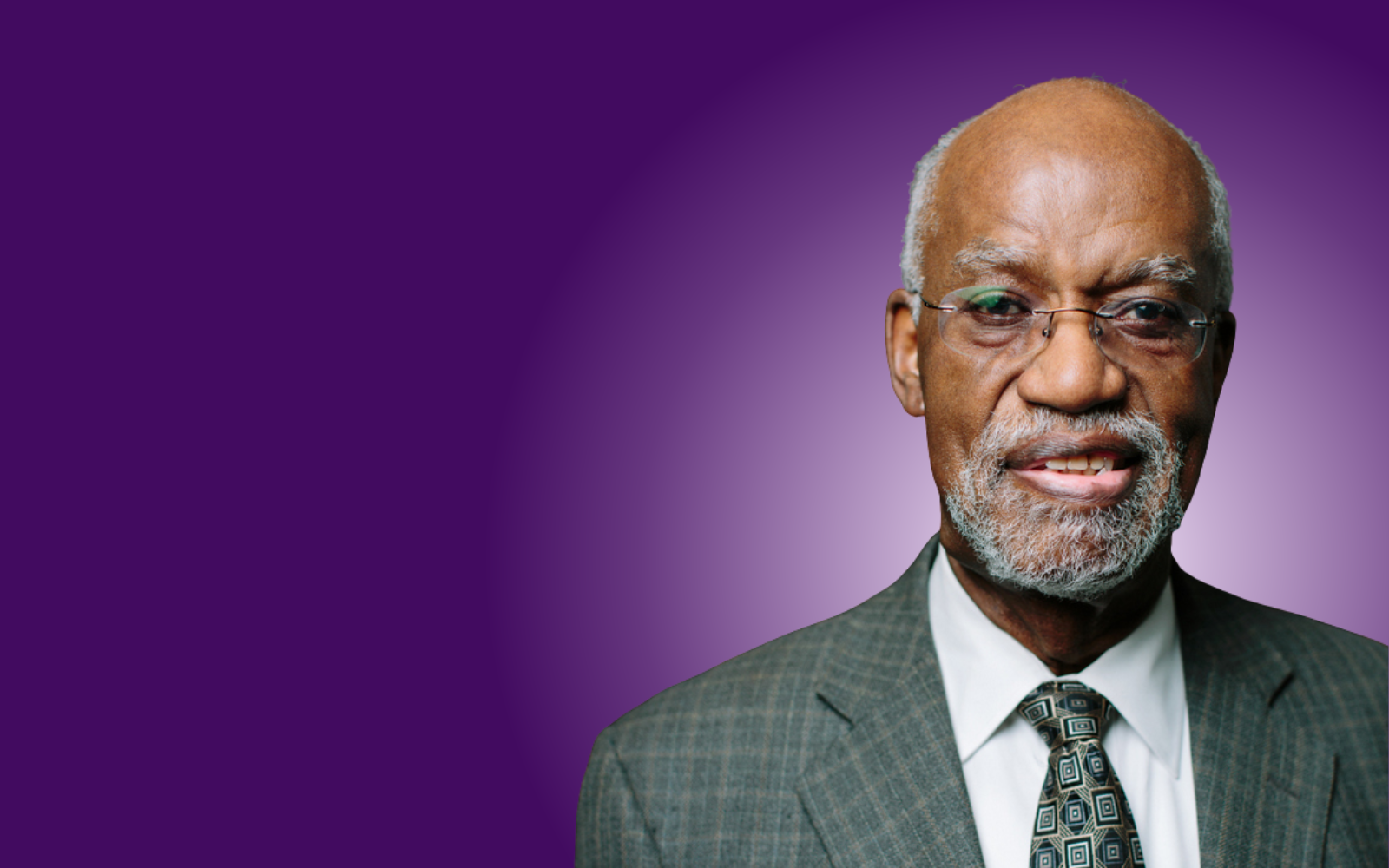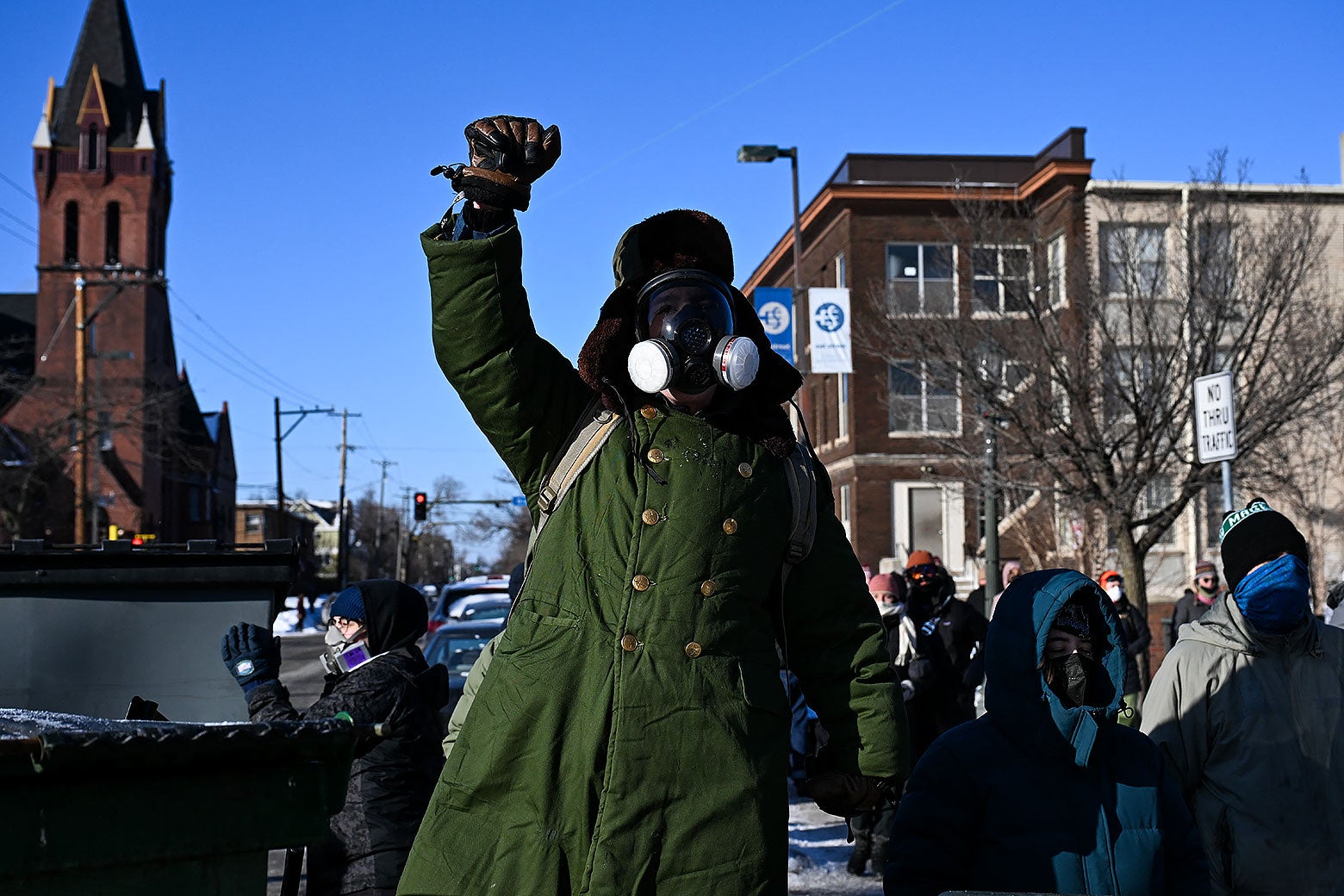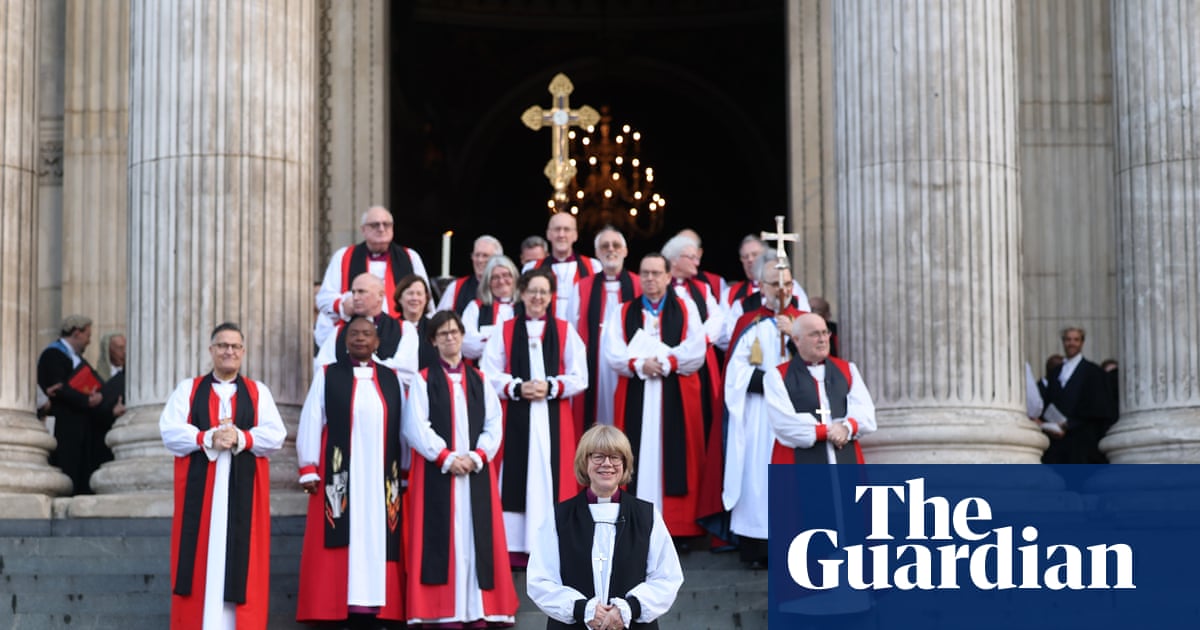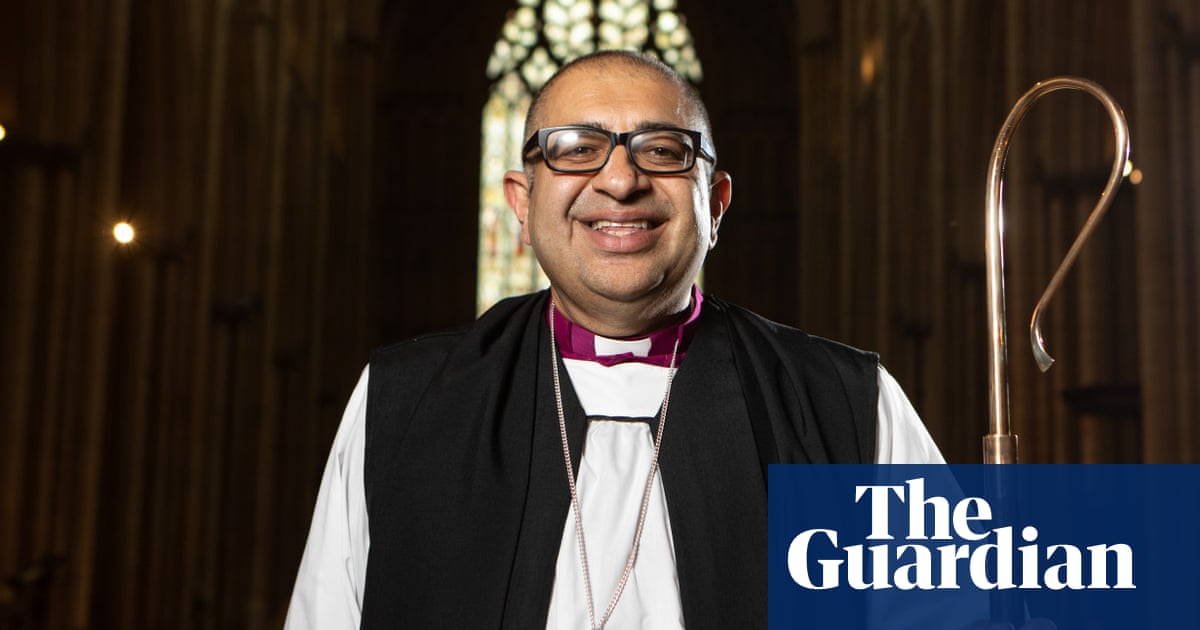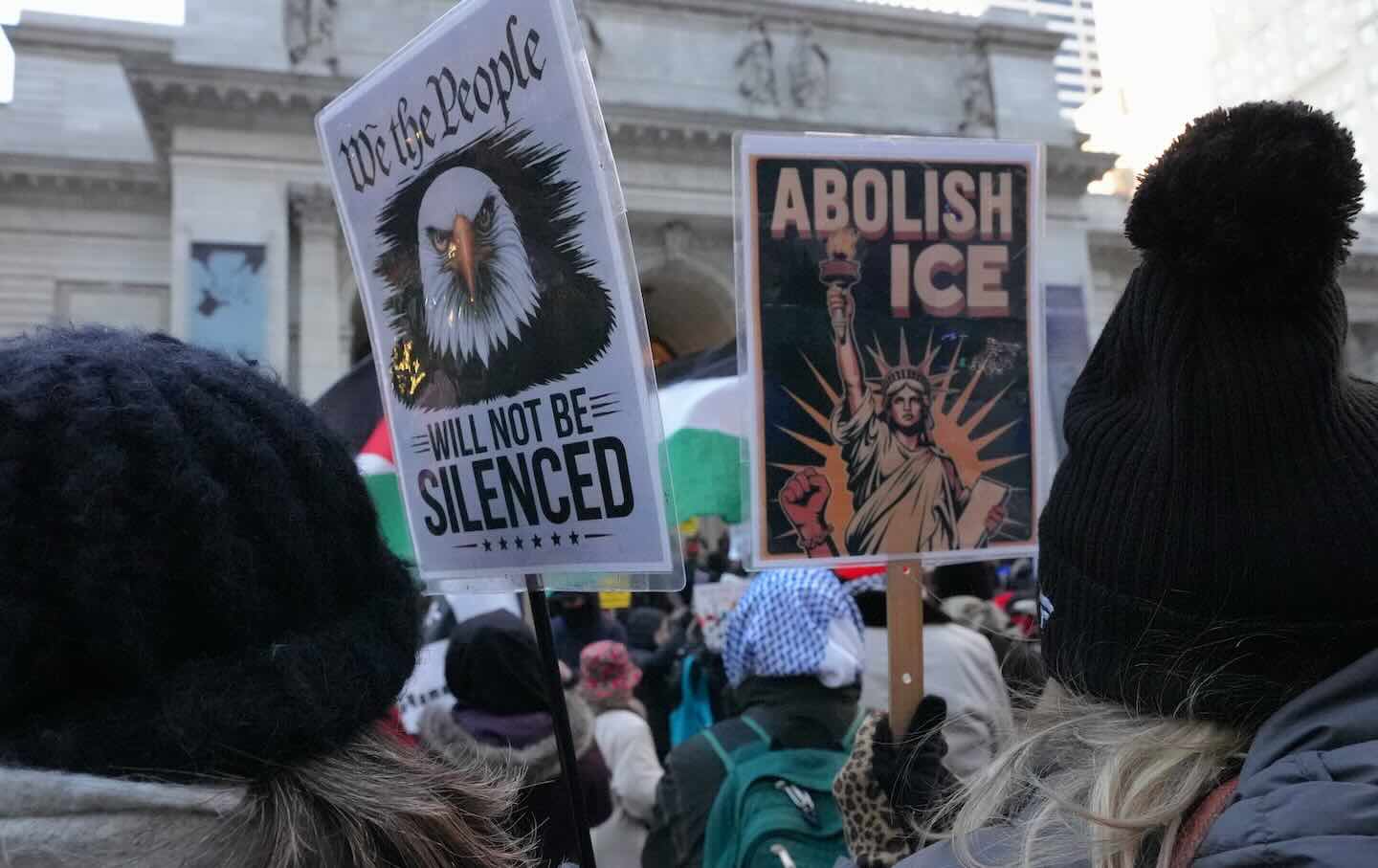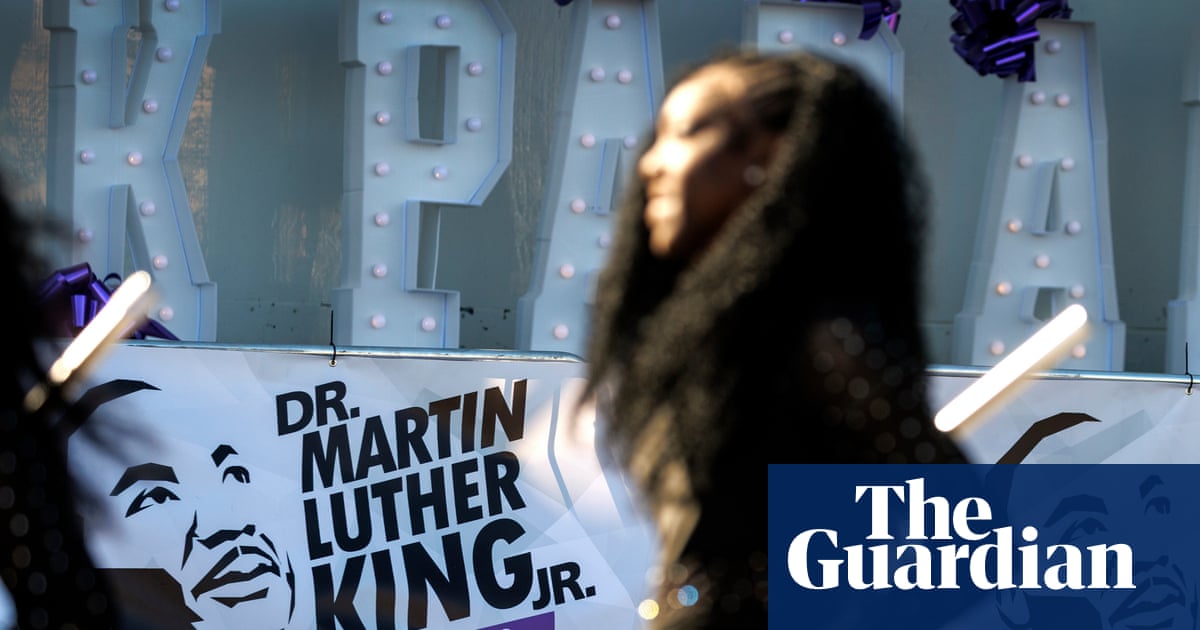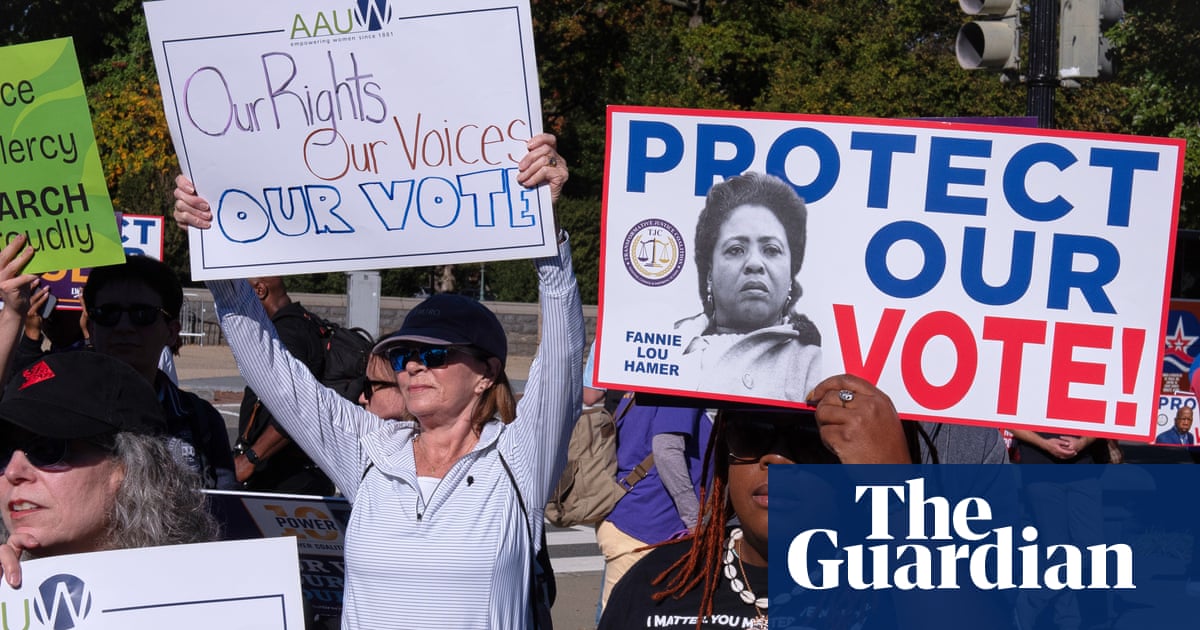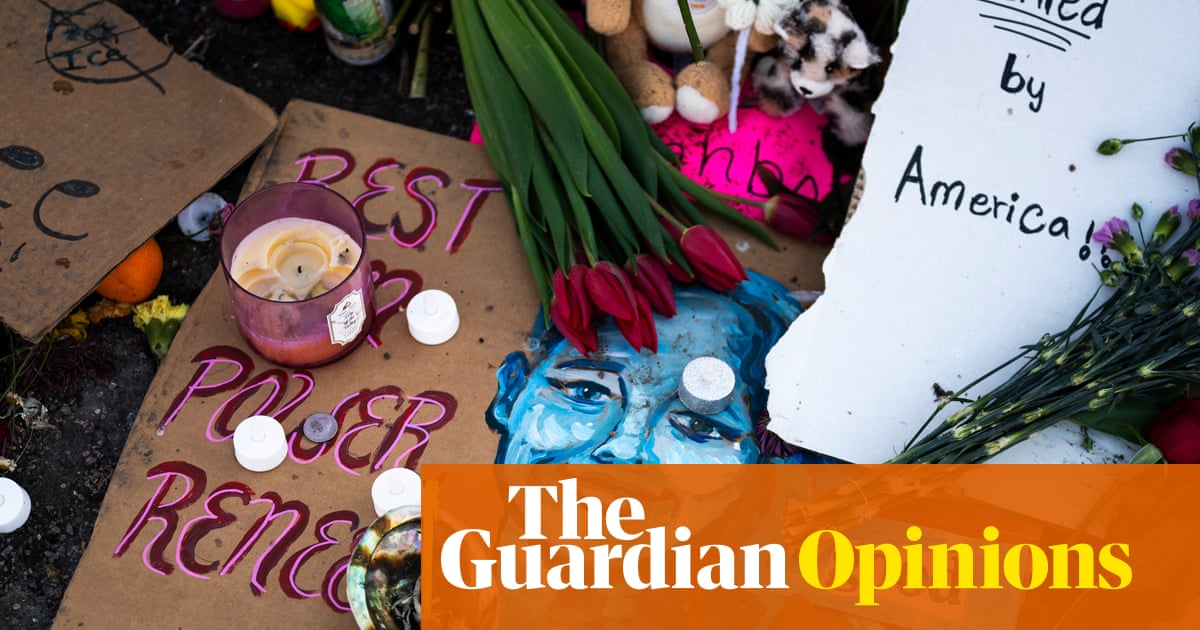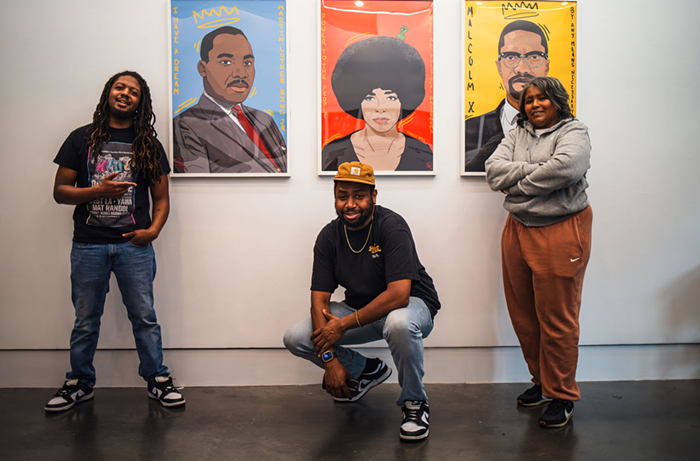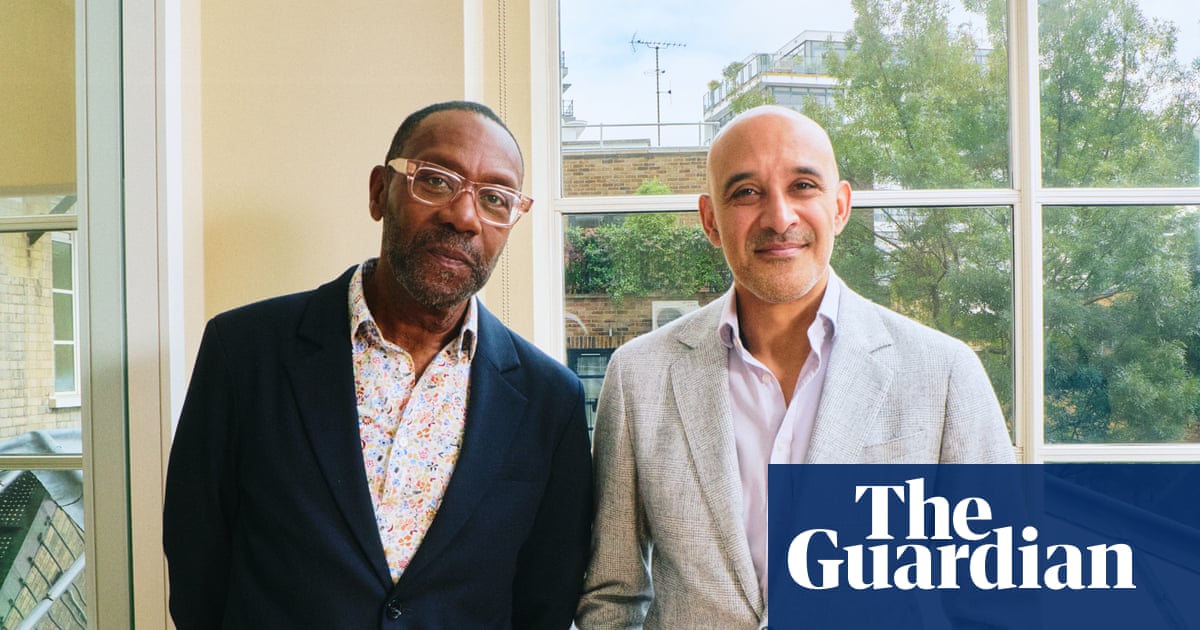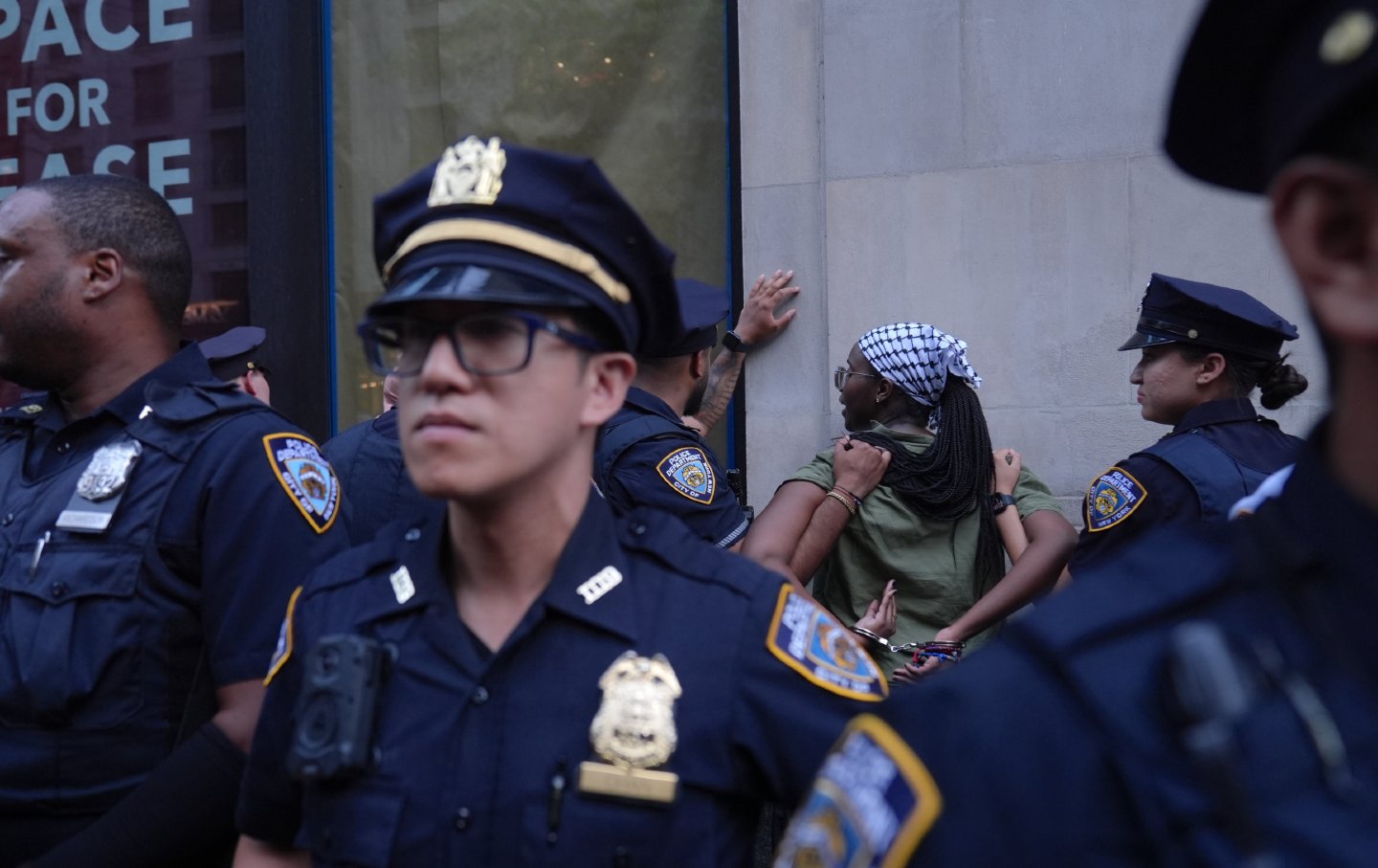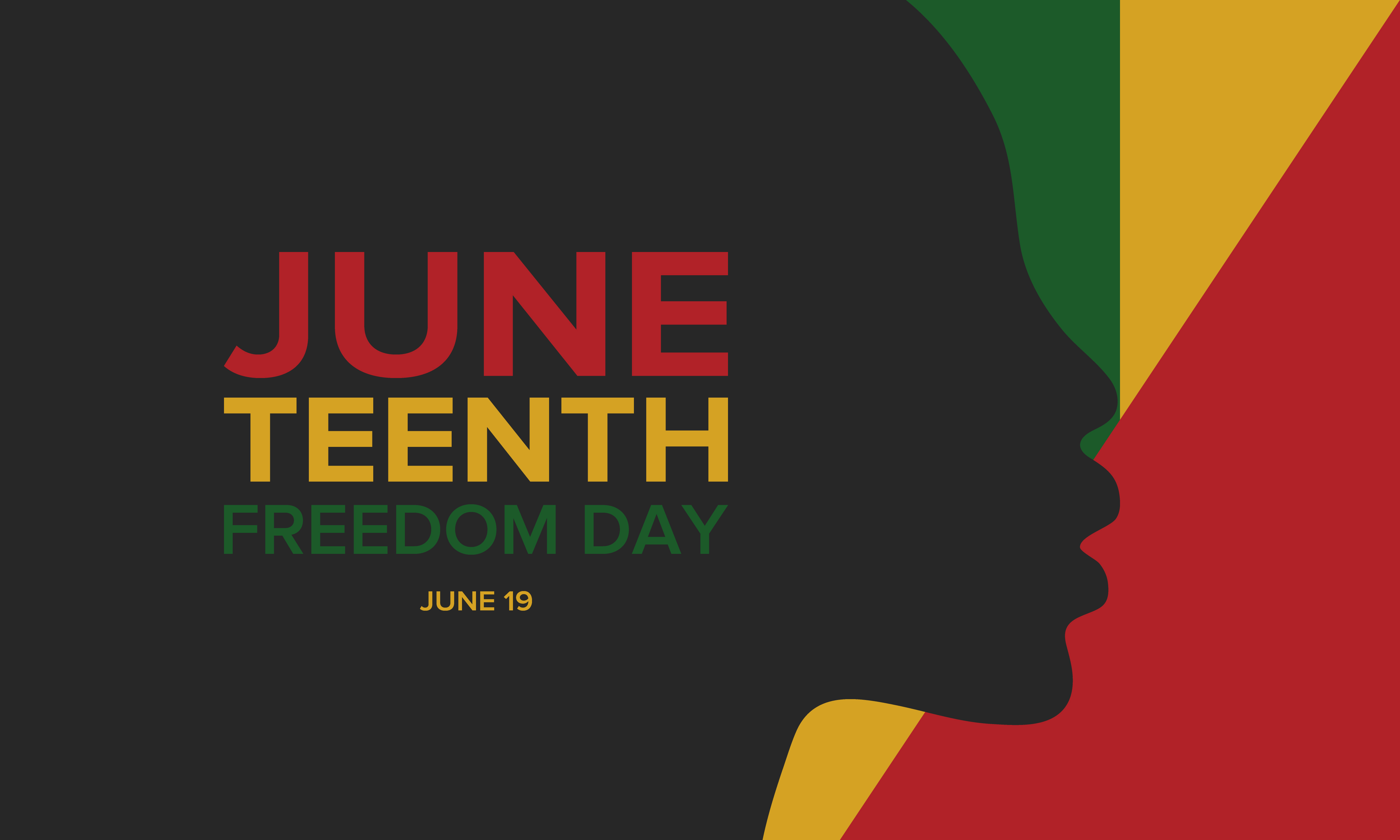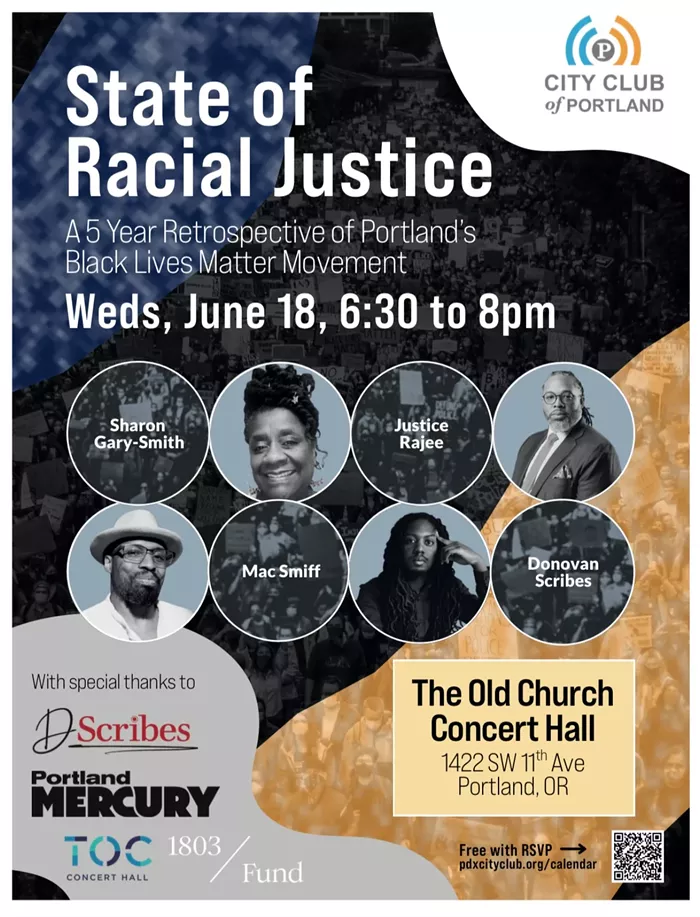#racial-justice
#racial-justice
[ follow ]
#george-floyd #civil-rights #police-violence #activism #black-lives-matter #immigration-enforcement #portland
#black-history
NYC politics
fromTheGrio
1 day agoNYC Mayor Mamdani apologizes for excluding Black Americans in previous 'city built by immigrants' comments
New York Mayor Zohran Mamdani acknowledged overlooking Black Americans' contributions to building New York City while emphasizing immigrant contributions, and apologized for the exclusionary framing.
fromwww.theguardian.com
2 days agoBlack History Month was never given' to Black people, thus, it can never be taken from us
If you know anything about the basic origins of Black History Month then you know that we weren't given' anything. The question of who owns and authorizes Black History Month holds particular relevance now, in its centennial year, and at a time when efforts to celebrate, preserve, and acknowledge Black people's past in this country are under attack.
History
US politics
fromwww.npr.org
5 days agoCivil rights leaders say the racial progress Jesse Jackson fought for is under threat
Rev. Jesse Jackson, a civil rights icon who transformed Black political power through groundbreaking 1980s presidential campaigns, died at 84, leaving a legacy of expanding political possibilities for Black Americans and people of color.
Public health
fromPsychology Today
5 days agoArchiving Black Feminist Sex Therapist Dr. June Dobbs Butts
Dr. June Dobbs Butts pioneered comprehensive, culturally-adapted sex education as a Black feminist scholar, connecting sexual health equity to racial justice and training as the first Black sex therapist.
fromSan Jose Spotlight
1 week agoCantrell: Is California's 'justice' system just slavery by another name? - San Jose Spotlight
The next "Dying to Stay Here" podcast will feature a panel discussing what we call our criminal justice system. The panel reflected on a recent election in California, where voters were asked, in plain language, whether they wanted to remove slavery from our constitution, where it's still allowed "as punishment for a crime," and voted to keep it. As we celebrate another Black History Month, I reflect on the disproportionate number of Black people behind bars.
Social justice
fromNonprofit Quarterly | Civic News. Empowering Nonprofits. Advancing Justice.
3 weeks agoThe Third Reconstruction: Looking Beyond the Emergencies of Today to the Beloved Community | Nonprofit Quarterly | Civic News. Empowering Nonprofits. Advancing Justice.
In his "Freedom Dreams: The Black Radical Imagination," Robin D.G. Kelley explains that "a map to the new world is in the imagination." There are so many emergencies right now-ICE abductions, decriminalization of anti-Black racism, the political hijack of the struggle against antisemitism and anti-Blackness, unauthorized military aggression abroad, a climate crisis accelerated-that it's hard to know where to direct our resistance.
US politics
UK politics
fromwww.theguardian.com
3 weeks agoBritons' right to protest is under threat like never before. If you value it, speak up now | Imran Khan
Lawful protest and free speech are fundamental but can be abused; laws are inconsistently applied, leaving racialised groups—especially Muslims—disproportionately unprotected.
Arts
fromThe Art Newspaper - International art news and events
3 weeks agoAlabama advocacy group expands its historical sites
Bryan Stevenson founded EJI to represent death-row inmates and expanded its work into memorials and museums confronting racial injustice, including Montgomery Legacy Sites and a sculpture park.
US politics
fromAxios
1 month agoHow Trump's ruthless first year erased the Biden presidency
Trump is reversing Biden-era priorities—rolling back democratic accountability, racial-equity initiatives, expert-driven governance, and climate action while promoting racial grievance, immigration crackdowns, and fossil fuels.
fromScary Mommy
2 months agoScary Mommy's Favorite Badass Mom Moments Of 2025
Take their neighbors, classmates, and community members? Not on their watch. Moms around the country dedicated much of their year to protecting children and families in their communities from unlawful deportation. There was the group of over a dozen moms arrested while protesting outside Broadview Detention Center in Chicago. There was t he mom group who organized a "walking school bus" to get children to school safely if their parents feared being targeted by ICE.
Social justice
fromNieman Lab
2 months agoStewarding the stories that power tries to silence
As 2026 approaches, journalism finds itself in a dangerous kind of forgetfulness. Hard-won truths grow quieter by the day; the racial reckoning that once roared through newsrooms now echoes faintly beneath a tightening political silence. In that hush, the future of news hinges upon one assignment - remembering what power hopes we forget. And so we enter a moment of transformation.
US news
Social justice
fromNonprofit Quarterly | Civic News. Empowering Nonprofits. Advancing Justice.
2 months agoA National Network of Activists Pursuing "People's Budgets" Gains Prominence | Nonprofit Quarterly | Civic News. Empowering Nonprofits. Advancing Justice.
People's budgets and participatory budgeting have spread across many U.S. cities, centering racial justice, grassroots coalitions, and divest-invest or care-not-cuts alternatives.
US politics
fromNonprofit Quarterly | Civic News. Empowering Nonprofits. Advancing Justice.
2 months agoPaving the Path for a Third Reconstruction | Nonprofit Quarterly | Civic News. Empowering Nonprofits. Advancing Justice.
A Third Reconstruction requires bold, systemic action to dismantle racial oppression and rebuild an inclusive, multiracial democracy with lasting justice.
fromScary Mommy
2 months agoHonoring Ahmaud Arbery: His Mother Shares Her Fight For Change
In 2020, Ms. Wanda Cooper-Jones made a promise no mother should ever have to make - a vow to fight for justice for her son, no matter how long or how painful the road ahead would be. Her youngest, Ahmaud Arbery, was only 25 when he was murdered for being a Black man jogging in a suburban Georgia neighborhood. Even with a cell phone recording of the murder taking place, it would be months before anyone was even arrested.
Social justice
US politics
fromNonprofit Quarterly | Civic News. Empowering Nonprofits. Advancing Justice.
3 months agoWhy We Must Defend the Fourteenth Amendment | Nonprofit Quarterly | Civic News. Empowering Nonprofits. Advancing Justice.
The Reconstruction Amendments intentionally pursued a race-conscious path toward a multiracial democracy, correcting the Constitution's original limitations on equality and voting rights.
fromwww.theguardian.com
3 months agoAnglican bishop shaken to the core' by home secretary's asylum seeker comments
We are scapegoating asylum seekers for the failures and political divisions caused by successive governments in the last 15 years the failures of successive governments to address wealth inequality, funding for education, the cost of living and primary healthcare and infrastructure. Every day I meet homeless people who have fallen through the cracks in our system. And yet in singling out asylum seekers we are laying the burden of society's problems on less than 1% of the UK population
UK politics
fromNew York Daily News
3 months agoMaintain sanctuary in New York City
New Yorkers sent a resounding message on Election Day: they want a city that fights back against President Trump and protects all New Yorkers, including our immigrant neighbors. Since Trump took office in January, New Yorkers have seen Immigration and Customs Enforcement (ICE) ramp up its operations , disappearing our loved ones and engaging in brutal deportation tactics at federal immigration court , at workplaces and in homes.
US politics
Social justice
fromNon Profit News | Nonprofit Quarterly
3 months agoWhy the Struggle for a Third Reconstruction Remains the Struggle for Our Times - Non Profit News | Nonprofit Quarterly
A Third Reconstruction requires bold, systemic action to realize a lasting multiracial democracy in the United States contested since the Civil War.
fromwww.amny.com
4 months agoSupervising Judge Austin D'Souza brings his community network to the job of overhauling Manhattan civil courts | amNewYork
He recalled how one day he did a home visit with a child who was born addicted to cocaine. I was never born addicted to anything, D'Souza said. The challenges that those folks have to deal with in order to overcome and become somebody that they dream about becoming is such a huge difference between what I had to go through. It awakened my thinking about what I want to do with my life. From that moment on, D'Souza said he knew he was going to dedicate his career to public service.
Law
#george-floyd
Black Lives Matter
fromPoynter
9 months agoGeorge Floyd did not die of a drug overdose. Why does misinformation about his death persist? - Poynter
Chauvin's conviction was overshadowed by false narratives blaming Floyd's death on drug overdose rather than police misconduct.
Persistent misinformation regarding Floyd's death has implications for criminal accountability and police reforms.
Black Lives Matter
fromwww.theguardian.com
4 months agoIndecency has become a new hallmark': writer and historian Jelani Cobb on race in Donald Trump's America
Early news reports present inflammatory fragments that obscure complex, interconnected patterns of racial violence, legal outcomes, activism, and the fragility of racial justice and democracy.
fromFilmmaker Magazine
4 months ago"We Have to Think Deeply about Community Policing": Geeta Gandbhir on The Perfect Neighbor
Geeta Gandbhir's The Perfect Neighbor, which premiered in the US Documentary section of this year's Sundance, is likely one of the first feature docs primarily composed of police body camera footage. Sifting through footage with editor Viridiana Liberman ( The Sentence), Gandbhir builds out a suspenseful and heartbreaking portrait of neighborly violence in a close-knit Central Florida community, after white woman Susan Lorincz fatally shot Ajike Owens-Gandbhir's sister-in-law's best friend, though Gandbhir didn't know Owens personally.
Film
fromThe Mercury News
4 months agoHow Bruce Lee transformed from martial arts star to enduring Asian American icon
"You know, when you do a celebrity bio there's a certain kind of format," he says on a recent afternoon in a downtown Los Angeles bookstore, where outside at one point gunshots and police sirens interrupted the calm inside. "The mission is to dig up all the dirt you can. The essential narrative is, 'This person wasn't an angel.'"
Books
Social justice
fromNon Profit News | Nonprofit Quarterly
4 months agoWhat Is Reparative Capital and Why Does It Matter? - Non Profit News | Nonprofit Quarterly
Reparative capital directs funds to repair theft and systemic harm inflicted on African and Indigenous peoples, using nonextractive, patient, and culturally grounded financial practices.
fromstupidDOPE | Est. 2008
4 months agoThe Fight for Fairness: CJEI and the Future of Cannabis in New York | stupidDOPE | Est. 2008
When New York legalized cannabis, it was hailed as a historic shift. Headlines celebrated an overdue end to prohibition and the chance to repair decades of criminalization that devastated Black and Brown communities. Yet for those who lived through the era of the "War on Drugs," legalization is not simply a victory. It sparks a deeper, more pressing question: what does justice look like in a legal cannabis economy, and who is truly benefiting?
Social justice
Social justice
fromNon Profit News | Nonprofit Quarterly
5 months agoHow Justice-Rooted Organizations Can Respond to the Racial Justice and Equity Backlash - Non Profit News | Nonprofit Quarterly
Racial justice and DEI work remains legal and essential despite rising political backlash and legal pressures.
fromwww.theguardian.com
5 months agoCharlie Kirk was a divisive far-right podcaster. Why is he being rebranded as a national hero?
The streets of Washington DC, are unmistakable. In addition to noting the city's signature architecture and public monuments, one will know they are in the nation's capital when they can barely go half a city block without spotting a US flag. Two weeks ago, those flags were flying at half-staff, but not in recognition of the passing of a high-ranking public official, as would be customary.
US politics
US politics
fromThe Art Newspaper - International art news and events
6 months agoArtists and scholars respond to White House's list of Smithsonian grievances
White House labeled multiple Smithsonian exhibits as objectionable, prompting artists, scholars, and communities to defend the works and oppose censorship.
Social justice
fromwww.theguardian.com
6 months agoSydney restaurant faces human rights complaint after temporarily denying entry to people wearing keffiyehs
The Racial Justice Centre will file a complaint with the Australian Human Rights Commission after a Sydney restaurant denied service to patrons wearing Palestinian keffiyehs.
Environment
fromThe Art Newspaper - International art news and events
8 months agoAt Baltimore Museum of Art, a new exhibition asks us to consider the connections between race, colonialism and the climate crisis
Colonial violence and extraction are critical to the current ecological breakdown and climate catastrophe.
Social justice
fromAbove the Law
8 months agoSkadden Fellowship Sells Out, Gets Rid Of Commitments They've Championed Since 1988 - Above the Law
The Skadden Fellowships are shifting away from promoting racial justice and other advocacy areas amid a changing political landscape.
The resignation of Kathleen Rubenstein marks a significant shift in the foundation's leadership and direction.
#black-lives-matter
Black Lives Matter
fromwww.theguardian.com
9 months agoWas the Black Lives Matter rebellion all for nothing? It may feel like that, but I have seen reasons for hope | Jason Okundaye
The toppling of Colston's statue was a significant moment in the Black Lives Matter movement, yet deeper societal change remains necessary.
fromThe Philosopher
9 months ago"Critical Race Theory, Science and Pseudoscience": A Conversation with Victor Ray and Sam Hoadley-Brill
Critics of CRT argue it's anti-scientific, challenging its universality and objectivity, yet the backlash often results from misunderstandings of its scholarly intentions.
philosophy
fromPortland Mercury
9 months agoThe world called for racial justice-but who will keep their promise?
Right out of the gate, the national media framed the 2020 Portland protests as they always do. They called it lawless. They called it grim. They made it sound that at any moment all hell was going to break loose.
Black Lives Matter
[ Load more ]
